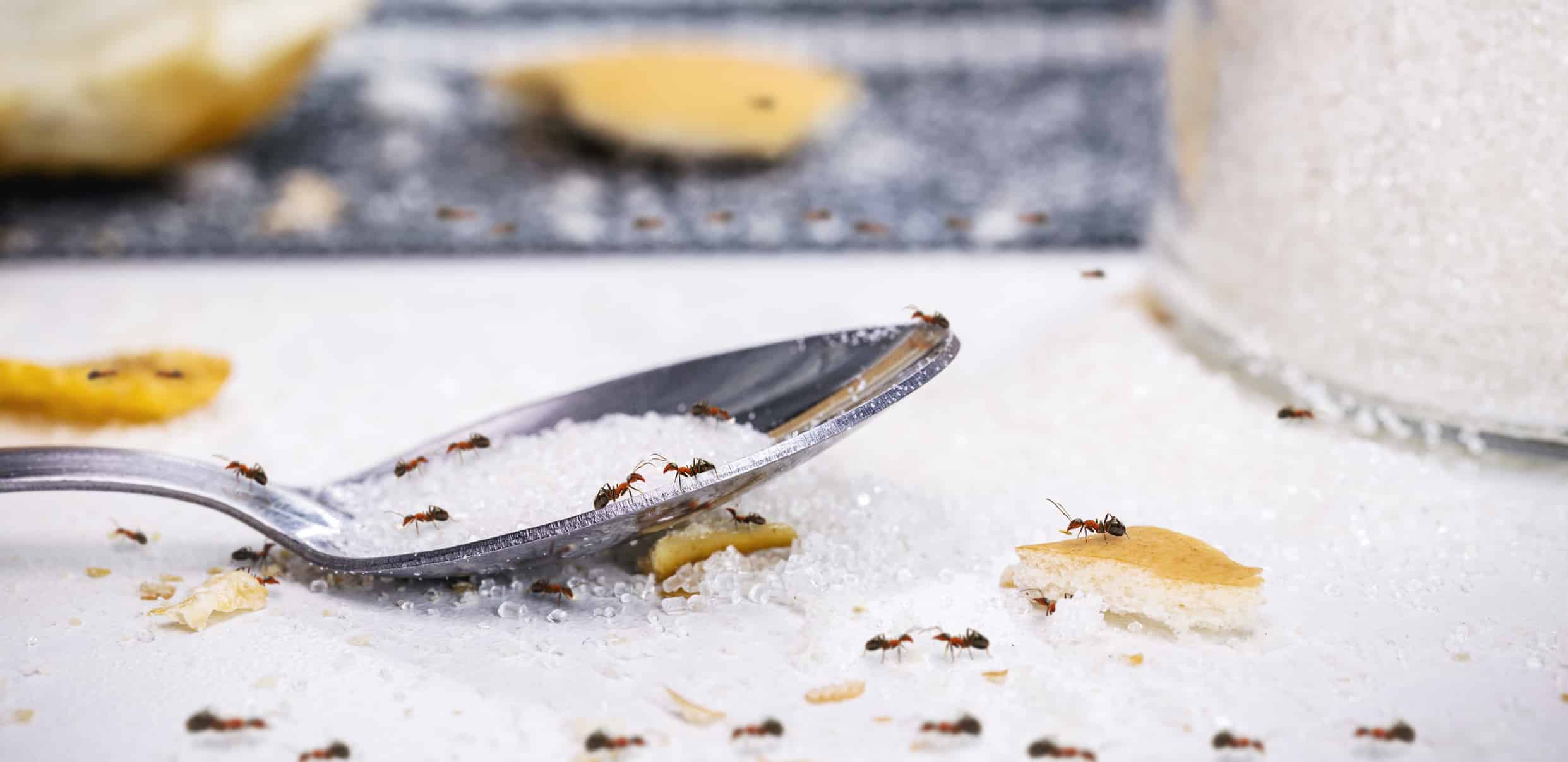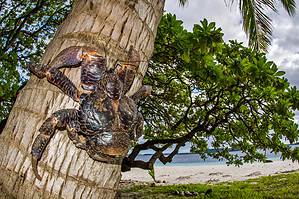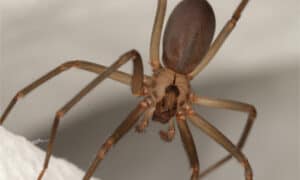Dealing with spiders, ants, or other insects in your home? While they play an important role in the ecosystem, most of us would prefer that they stay outside rather than in our indoor living space. But using toxic chemicals can be harmful to the insects as well as your home environment. Fortunately, you probably have a common item already in your home that you can use to keep these insects out: vinegar!
Using Vinegar to Keep Insects Away
White vinegar is a fantastic household item to have on hand for multiple uses. It is a handy way to repel spiders and ants. Just mix one part white vinegar with one part water in a spray bottle. Voila! You have the perfect all-natural spider and ant repellant. You don’t need a fancy spray bottle. Just a simple one from the hardware store will do just fine. Make sure to label it with what is inside so that you never have to wonder. This is important to make sure that you and everyone in your home remain safe and informed.
A spray bottle is the best way to apply the solution around your home. Not only does it make it easy to mix, it also helps you direct the spray. White vinegar dries quickly but it’s generally a good idea to wipe away any excess. This is especially important if you are spraying it on furniture or other pieces that should be protected. Fortunately, the white vinegar solution is also a great cleaning agent. Spray it to both repel spiders and ants as well as take care of messes.
You should spray the solution near baseboards, doors, windows, and other places where spiders and ants would enter your home. Ants can be easier to track since they often walk in a line into your home. Just follow them back to the entry point and spray all along. Let the solution sit for an hour or so for the most effectiveness. It’s also best to use it routinely. You may need to spray daily if you are trying to get rid of spiders and ants that are still making their way into your home. After a few weeks, you should notice fewer pests.
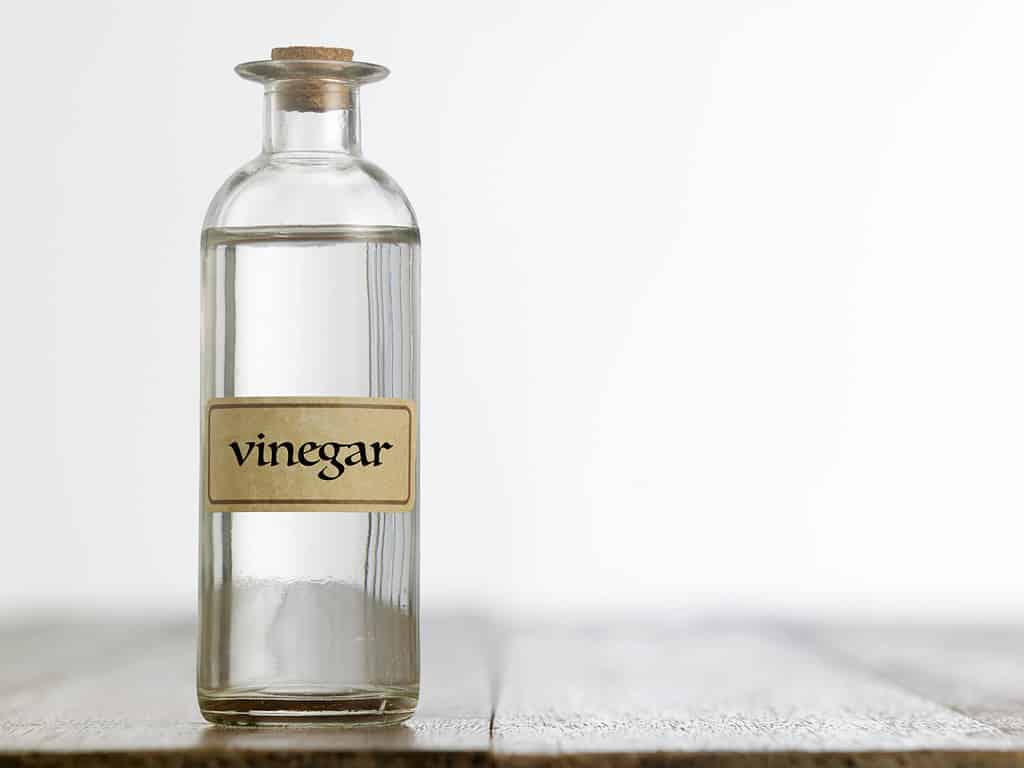
White vinegar makes an excellent repellent to get rid of spiders and ants.
©focal point/Shutterstock.com
Why Does Vinegar Repel Spiders and Ants?
White vinegar contains acetic acid. This chemical repels spiders and ants, which are both very sensitive to it. You’re probably familiar with the smell of vinegar and so are ants and spiders. It tastes and smells sour to them. This is the acetic acid in the liquid. White vinegar is the best option, since it doesn’t have any other components that can be sticky or result in a different odor. White vinegar also dries quickly and doesn’t leave any residue.
Ants prefer sugar and sweet tastes and odors. This is why they can find spilled food, especially sugar, so quickly in your home. The smell of the white vinegar messes with their natural scent receptors. They stay in such nice, neat lines by following trails of pheromones left by the ants in front of them. White vinegar interferes with that, disrupting them in many ways.
Vinegar doesn’t actually kill ants or spiders, but it does repel them. It is a good way to keep them out of places where you would rather they not be, such as the kitchen, without actually harming them. Making a vinegar spray part of your cleaning routine can help prevent spiders and ants from getting in without causing damage. They can stay outside where they will be beneficial.
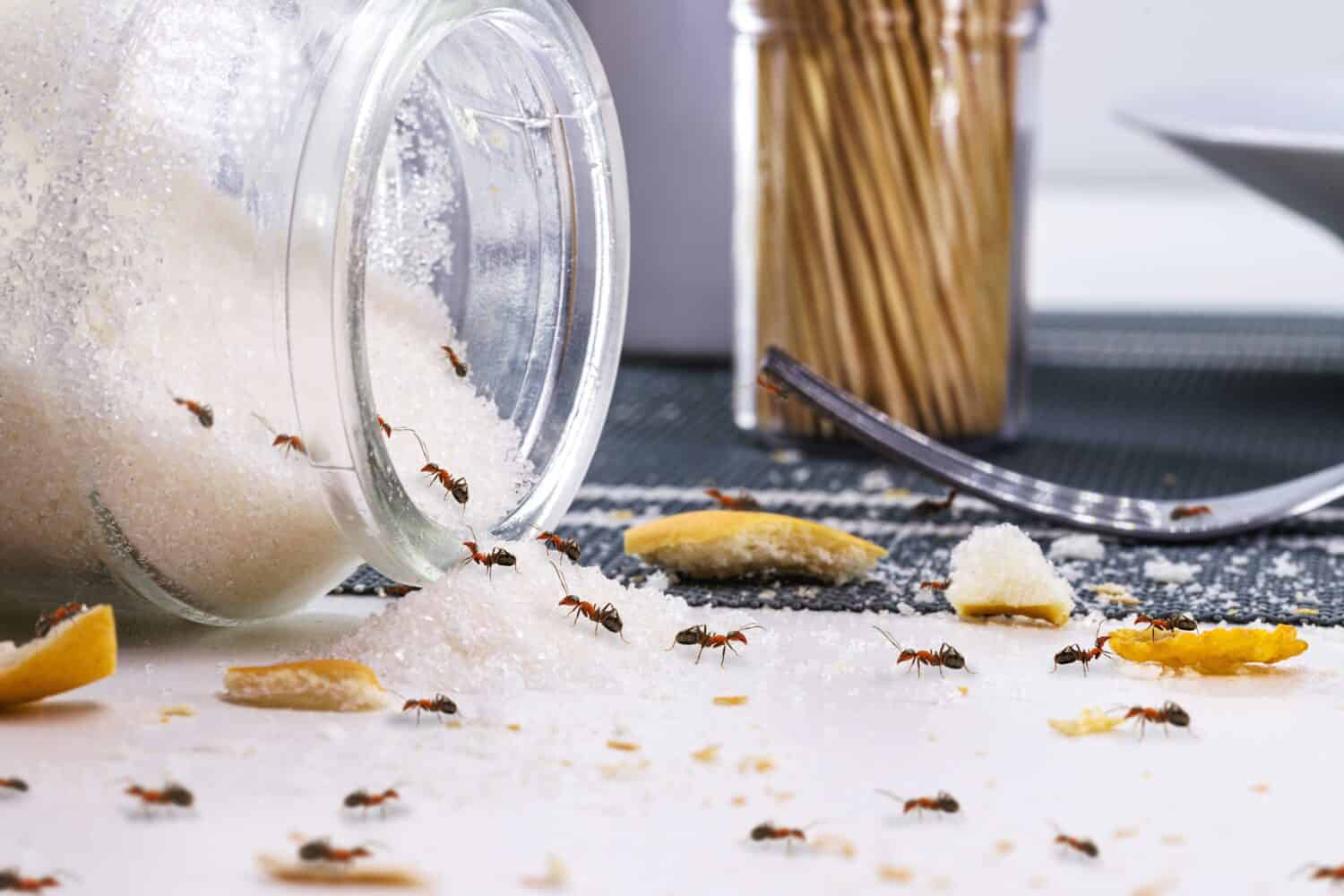
Ants love to get to sugary, sweet things, making them a common pest in the kitchen.
©RHJPhtotos/Shutterstock.com
Benefits of Using Vinegar
One of the main reasons why so many homeowners like using a vinegar spray solution is that it is a safer, natural alternative to harsh pest control chemicals. If you have pets, you probably don’t want to have ant traps with dangerous chemicals on the floors, near the doors, or in other places where your pets can get into them.
White vinegar can also be used for cleaning. The same solution that repels spiders and ants gets rid of messes. The acetic acid in the vinegar dissolves grime and soap scum in the bathroom. It also lifts up mold and grease. It even removes bacteria! For such a simple solution, white vinegar sure has a lot of uses.
It is also an affordable solution compared to many expensive cleaning or pest control products. You can make just as much as you need and easily mix up more solution when needed. With so many uses, white vinegar is something that everyone should keep ready to use in their home.

White vinegar is a pet-safe alternative to common pest control solutions.
©srw-photo/Shutterstock.com
Boosting Your White Vinegar Spray
If you want to take your white vinegar spray to the next level, consider adding some essential oils to make it smell amazing. Lavender and citrus oils are popular in many homes. The white vinegar smell will dissipate in just a couple of minutes, leaving behind the pleasant odor from the essential oils. If you’re worried about the essential oils making the sour smell of the vinegar less effective at repelling spiders and ants, don’t be. These insects dislike lavender and citrus smells as well! Adding them can actually make your vinegar spray solution even more effective.
To add essential oils, mix them in with the vinegar in the same spray bottle. You can add anywhere from a few drops to 15 or more, depending on how much of the solution you are making. It’s best to begin with just a few drops and add more as needed. You shouldn’t need a lot of essential oil, even if you are making an entire spray bottle.

Lavender essential oil can make homemade white vinegar solutions smell amazing!
©iStock.com/Olivka888
Spiders and Ants in the Home
Most of us have seen a spider or ant in the home but we may not know exactly what species we are dealing with. Fortunately, a white vinegar solution is effective on most species equally and identification isn’t a huge factor in treating them. There are a few dangerous species, however, that should be dealt with by an expert. Larger infestations may also require professional treatment.
Brown recluse spiders are venomous and often like to hide in dark, enclosed spaces. They can get indoors and bite if startled or feeling threatened. They are brown and have a fiddle-shaped marking on their head. Spraying white vinegar around your doors and windows, especially those that lead to dark and damp spaces like an attic or basement, can keep these potentially dangerous spiders out of your home. The Centers for Disease Control and Prevention recommends calling your doctor or going to the emergency room immediately if you have been bitten by a brown recluse.
Most ants don’t pose a major threat by themselves. But some species can cause havoc on your home. Carpenter ants make tunnels inside wood. This can impact the structure of your house. And you often don’t know that there is an issue until after it is quite significant. Spraying white vinegar to deter ants just might save you from major headaches down the road. It’s still a good idea to have a professional evaluate the infestation, especially if you are dealing with a lot of ants. They can recommend treatment and identify early if there are other problems, such a structural damage, to handle.
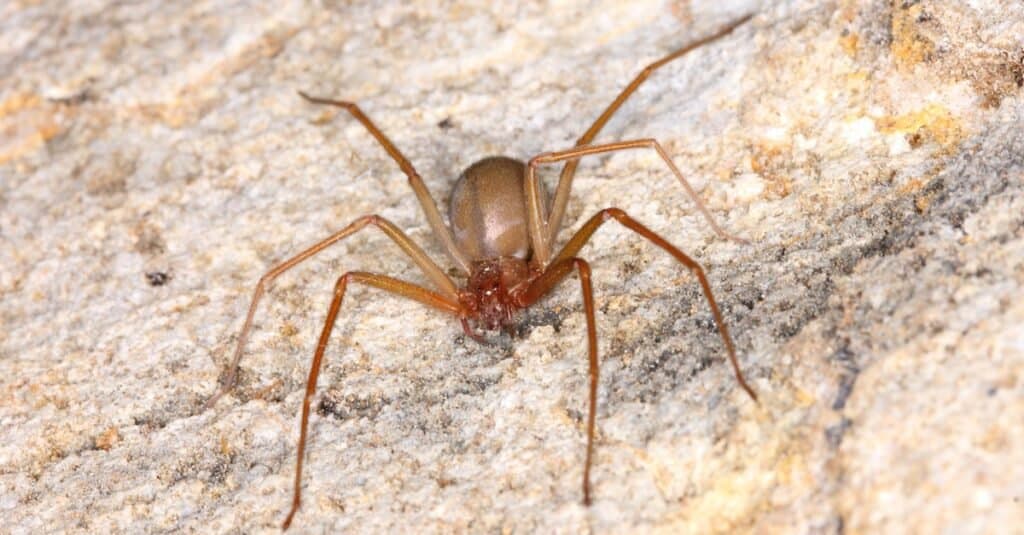
The brown recluse spider is one of the most dangerous spiders in the United States. Its venom destroys the walls of blood vessels near the site of the bite, sometimes causing a large skin ulcer.
©Pong Wira/Shutterstock.com
Thank you for reading! Have some feedback for us? Contact the AZ Animals editorial team.

